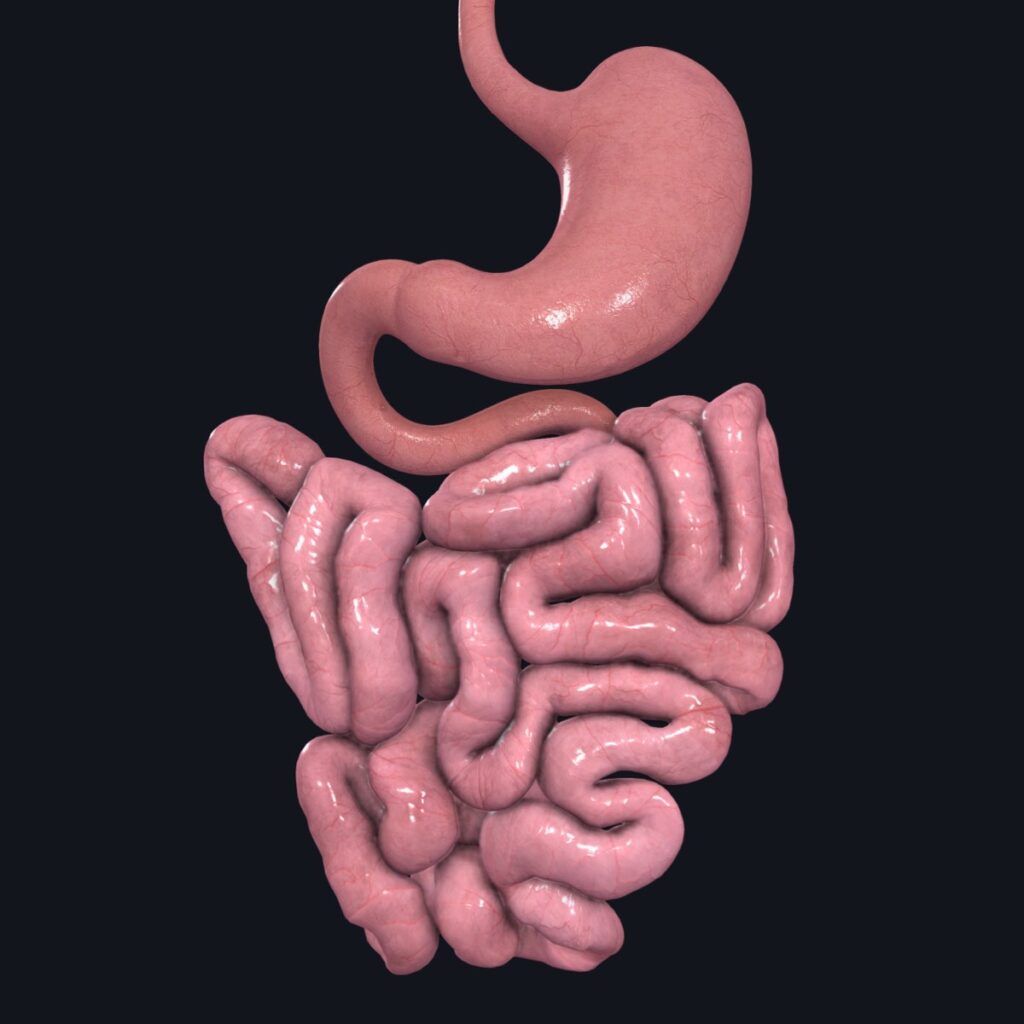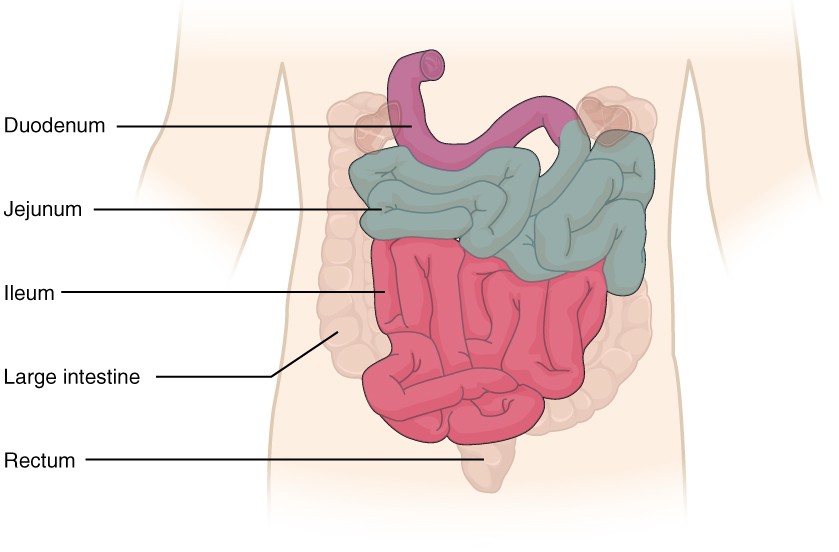

The small intestine serves several important functions in the digestive process:
- Digestion: The small intestine is responsible for further breaking down food particles that have been partially digested in the stomach. Enzymes produced by the pancreas and the small intestine itself help break down carbohydrates, proteins, and fats into smaller molecules that can be absorbed.
- Absorption: The primary function of the small intestine is to absorb nutrients and water from the digested food. The inner surface of the small intestine is lined with finger-like projections called villi, which are covered with even smaller projections called microvilli. These structures significantly increase the surface area for absorption, allowing nutrients like glucose, amino acids, fatty acids, vitamins, and minerals to pass into the bloodstream.
- Nutrient Transport: Nutrients absorbed by the villi are transported across the intestinal wall and into the bloodstream. From there, they are carried to various cells and tissues throughout the body to support growth, energy production, and overall health.
- Secretion: The small intestine produces and releases various enzymes and hormones that aid in digestion. For example, the pancreas secretes enzymes that help break down carbohydrates, proteins, and fats. Hormones like cholecystokinin (CCK) and secretin are also released in response to the presence of food, helping to regulate the secretion of digestive juices and bile.
- Bile Function: Bile, produced by the liver and stored in the gallbladder, is released into the small intestine to aid in the digestion of fats. Bile helps emulsify fats, breaking them down into smaller droplets that can be more easily digested by enzymes.
- pH Regulation: The small intestine regulates the pH of the chyme (partially digested food) that enters it from the stomach. This is important because the enzymes involved in digestion function optimally within specific pH ranges.
- Immune Function: The small intestine also plays a role in the immune system, as it is exposed to various potentially harmful microorganisms and antigens. Specialized immune cells in the intestine help protect against infections and maintain a balanced immune response.

In summary, the small intestine’s main functions include digestion, absorption of nutrients, water and electrolytes, nutrient transport, hormone and enzyme secretion, pH regulation, and immune function. Its efficient structure and processes are crucial for overall nutrient uptake and maintaining bodily functions.

VISIT OUR OFFICE : 5TH FLOOR LE-DESIRE COMPLEX, CIRCULAR ROAD ,LALPUR, RANCHI, JHARKHAND
VISIT OUR WEBSITE FOR MORE INFOMATION HTTPS://ETERNALCAREERCLASSES.COM
FOR TEST SERISE, PREVIOUS YEAR QUESTION PAPER OF NEET AND DPP FROM ALL CHAPTERS ARE AVAILABLE ON ETERNAL RANCHI APP.DIRECT DOWNLOAD FROM QR CODE GIVEN BELOW
